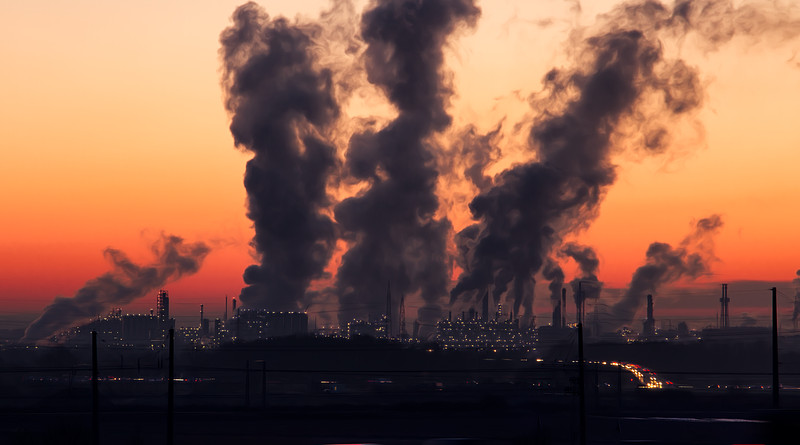High Energy Prices Turn Up Heat On Climate Summit – OpEd
By Arab News
By Ranvir S. Nayar *
Almost two years after the global pandemic erupted, another phenomenon has gone viral across the world at almost the same speed, threatening nations with energy prices up to 25 times higher than they were barely 18 months ago.
Take Europe. At the peak of pandemic, prolonged lockdowns led to a collapse in energy consumption and European gas prices fell to historic lows. However, since the beginning of the year, and especially since the onset of summer, as the economic recovery picked up pace, energy prices have raced to record levels. As a result, wholesale European gas prices are four times as high as at the beginning of July this year.
With no sign of an easing of gas prices, many European utilities have switched back to coal, ironically the fossil fuel that has been the focus of attacks by the EU at numerous climate change talks, in which the Europeans have urged other countries, including the US, China and India, to cut their coal usage and switch to cleaner fuels in order to curb carbon dioxide emissions.
But, now, barely three weeks before the COP26 climate change summit in Glasgow, the EU is seeing its own utilities switch from gas to coal. Due to the unprecedented rise in gas prices and the price of carbon — a cost all EU-based carbon emitters have to pay — utilities are finding switching to coal to be cheaper than gas.
Yet the surge in wholesale power prices continues. In Italy, prices were about 473 percent higher on Oct. 5 compared with Jan. 1. The rise was almost identical in Spain and Portugal, while Germany and France, the two largest EU economies, saw their power prices about 364 percent higher in the same period. Consumers are angry and there is talk of public protests against high energy prices similar to the gilets jaunes, or yellow vests, demonstrations that rocked France for months in 2018-19.
The switch to coal in Europe comes at the same time as coal stocks around the world come under pressure from large-scale flooding and a rise in demand due to other coal-heavy economies, such as China and India, rediscovering their mojo. Thus, coal prices have also been rising and the dirtiest fossil fuel is almost twice as expensive as it was in July.
Along with coal, oil prices have been climbing across the world and, from the US to China, are now at their highest levels since the start of the pandemic. This has made the going especially tough for consumers due to the high level of taxes. In India, for example, petrol, diesel and cooking gas prices are at record highs after rising by 30 percent since June.
For most countries, there is little sign of respite in the near future or even for the next six months, as economies slowly gain pace and energy consumption increases, especially with the onset of winter and soaring demand for heating in the Northern Hemisphere. The timing of this spike in energy prices — be it for domestic, industry or transport — is especially tricky for global political leaders, who in less than two weeks are expected to announce aggressive carbon dioxide emission cuts at the Glasgow summit.
The switch from “clean” gas to “dirty” coal in Europe shows how easy it is for even the most consciously “green” region of the world to slip back into old habits when faced with a challenging situation that politicians struggle to address.
Thus, faced with severe coal shortages that threaten wider and longer blackouts, India is ramping up its coal production on an emergency footing. Earlier this year, in a highly controversial and unpopular move, the government decided to open up some of the country’s oldest forests to allow coal mining by companies owned by billionaire Gautam Adani.
While falling back on tried and tested energy sources, such as coal and oil, may seem to be the easiest option for politicians, the current energy crisis also presents an opportunity, even if apparently a difficult one, to make even larger and irretrievable switches away from dirty fuel to renewable energy sources. Certainly, a large-scale and one-way switch to green energy would be disruptive and rather expensive up front, but that is the only way out of the current mess, with the world fighting high fossil fuel prices and record high carbon dioxide emissions simultaneously.
This is the need of the hour, with dozens of reports by scientists warning that humanity is on the brink and, unless it immediately reverses the direction of its development, the entire planet faces doom due to the effects of climate change, which are becoming increasingly and more violently evident with each passing month.
But what will happen in Glasgow? Will the political leaders follow the only obvious course of action left? If the world was run by scientists or science-minded politicians, the answer would almost certainly be “yes.” But, unfortunately, as their past actions have repeatedly shown, politicians rarely have the spine to take the straight road and do the right thing. Most can be expected to once again mouth platitudes and announce ambitious cuts, for which they know they will never be held accountable.
This time around, they have an additional excuse of high energy prices, which they will use to find yet another fudge that looks grand on paper and will stay there. Meanwhile, the planet will continue to hurtle down the path toward death by climate change.
- Ranvir S. Nayar is managing editor of Media India Group.

